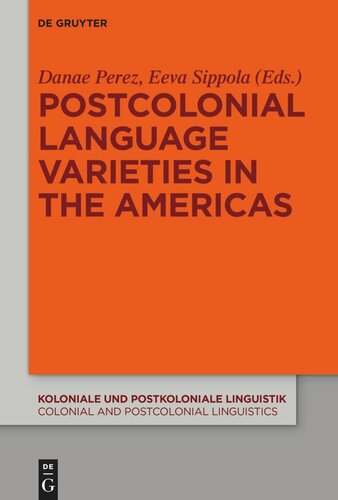

Most ebook files are in PDF format, so you can easily read them using various software such as Foxit Reader or directly on the Google Chrome browser.
Some ebook files are released by publishers in other formats such as .awz, .mobi, .epub, .fb2, etc. You may need to install specific software to read these formats on mobile/PC, such as Calibre.
Please read the tutorial at this link: https://ebookbell.com/faq
We offer FREE conversion to the popular formats you request; however, this may take some time. Therefore, right after payment, please email us, and we will try to provide the service as quickly as possible.
For some exceptional file formats or broken links (if any), please refrain from opening any disputes. Instead, email us first, and we will try to assist within a maximum of 6 hours.
EbookBell Team

0.0
0 reviewsIn the Americas, both indigenous and postcolonial languages today bear witness of massive changes that have taken place since the colonial era. However, a unified approach to languages from different colonial areas is still missing.
The present volume studies postcolonial varieties that emerged due to changing linguistic and sociolinguistic conditions in different settings across the Americas. The studies cover indigenous languages that are undergoing lexical and grammatical change due to the presence of colonial languages and the emergence of new dialects and creoles due to contact. The contributions showcase the diversity of approaches to tackle fundamental questions regarding the processes triggered by language contact as well as the wide range of outcomes contact has had in postcolonial settings.
The volume adds to the documentation of the linguistic properties of postcolonial language varieties in a socio-historically informed framework. It explores the complex dynamics of extra-linguistic factors that brought about the processes of language change in them and contributes to a better understanding of the determinant factors that lead to the emergence and evolution of such codes.